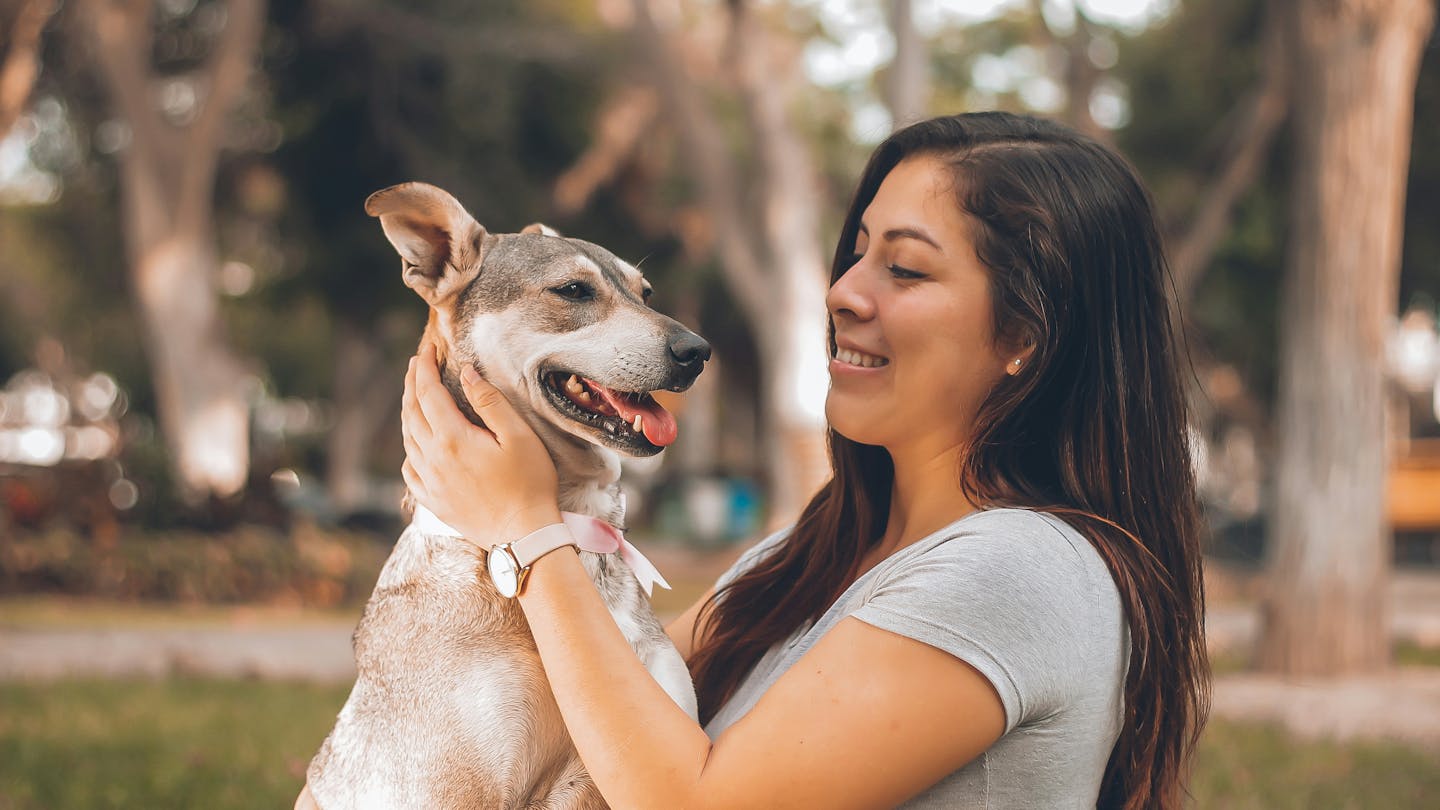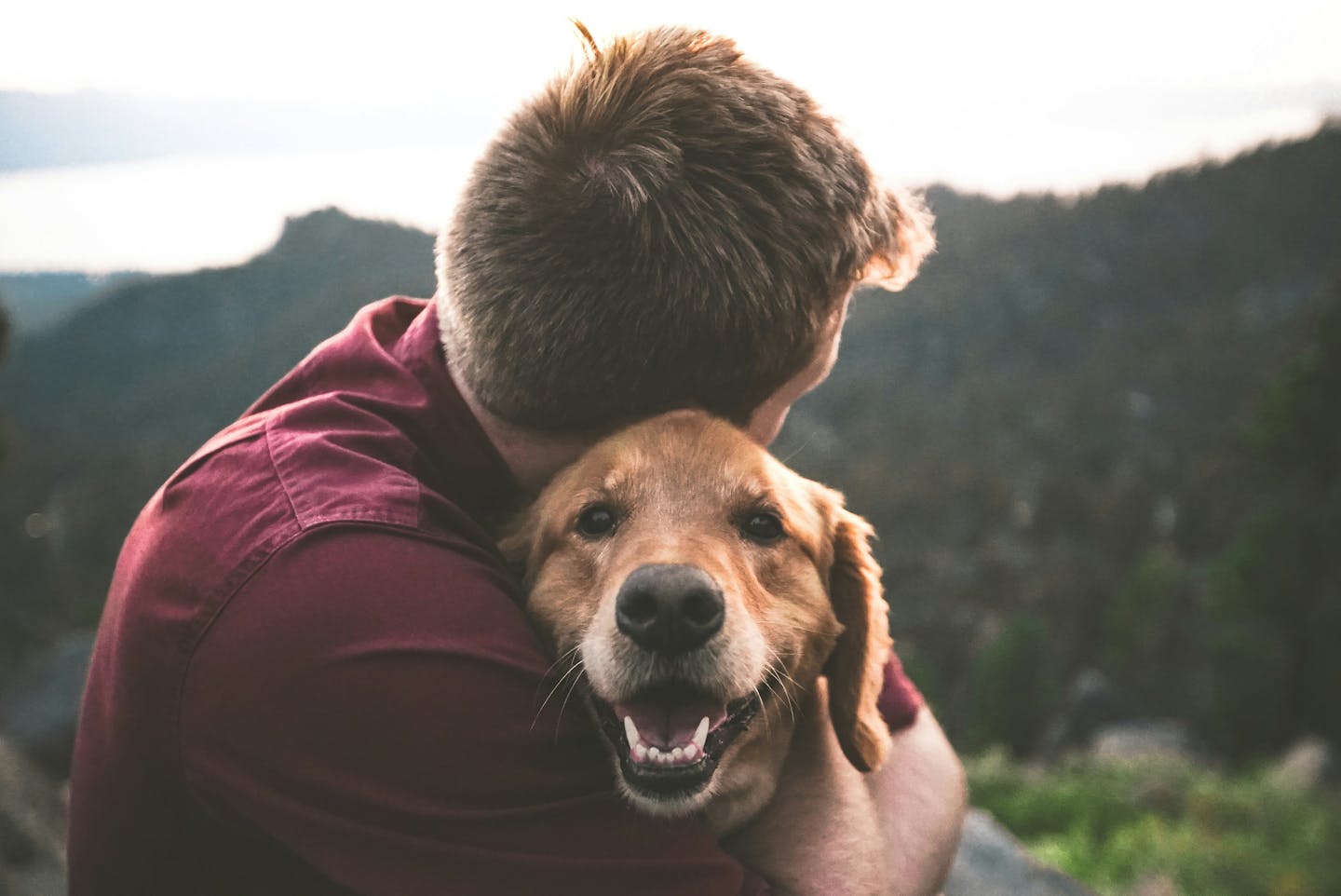
When it comes to caring for pets, some people worry most about physical health, while others are more concerned about financing potential health problems. But what stands out in a recent survey is that many pet guardians are especially focused on their pets’ emotional well-being, with separation anxiety at the top of the list.
The survey involved 600 pet guardians in the United States. Its results align with recent research highlighting shifts in the ways pets are perceived.
As a researcher who specializes in understanding the impact of the human-animal bond on people’s mental health, I am particularly interested in what these findings reveal about how people’s relationships with their pets shape both human well-being and animals’ welfare.
Paying closer attention to pet guardians’ concerns can help us examine how people’s and pets’ well-being are intertwined. It may also inspire policies more sensitive to the realities of pet guardians, supporting both animals and people.

The impact of the COVID-19 pandemic
In recent years, some studies have highlighted pet guardians’ growing concerns about pets’ mental health. For example, in one study with almost 45,000 pet guardians, 99 per cent of them described moderate or severe behavioural problems in their dogs, with attachment issues or separation anxiety as the most prevalent issue.
Another study suggests that COVID-19 lockdowns were detrimental to the mental health of some pets, particularly for those who already had symptoms of separation anxiety. During the pandemic, most people spent more time with their dogs, which might have strengthened the bond in some respects, but it also reduced pets’ privacy and safe spaces, which are essential for their emotional regulation.
Many people also decreased dog walks, and in homes with only one pet, these animals no longer had opportunities to socialize with other pets. Also, when pet guardians returned to their regular routines once lockdowns were lifted, the change was a trigger for some pets, and not only for dogs with a history of anxiety-related problems. When animals started to stay home alone again, some had difficulties coping with separation.
Another survey suggests that anxiety has increased significantly in dogs and cats since the pandemic, including fears of strangers, anxiety related to other pets and separation anxiety.
Taken together, these findings highlight the significant impact of the pandemic on pets’ behavioural issues, showing that these changes might have affected pets more than people realized.
Interconnections between people’s and pets’ mental health
While these problems in pets are indeed relevant, it is worth examining why they matter so profoundly for pet guardians, as these concerns may reveal something about the evolving role of the human-animal bond.

There is evidence that people’s vulnerability to emotional stress may have increased in recent years along with increased rates of anxiety, depression and a sense of loneliness.
Looking further, the stigma around mental health issues is decreasing, and people are gradually becoming less uneasy about acknowledging and talking about their emotional struggles.
Poorer mental health in guardians may be associated with more behavioural issues in pets. It is possible that a greater sensitization to mental health issues, combined with a stronger perception of pets as family members and a broader trend toward their humanization, is impacting pet guardians’ concerns about their pets.
Additionally, some studies have shown an association between elevated anxiety in pet guardians and increased fears and anxiety-related behaviours in pets. In this context, these findings might reflect broader changes in how pets are perceived, while also mirroring society’s increasing attention to mental health issues and the interplay between human and pet behaviours.
People’s concerns with pet’s behavioural and emotional problems may also reflect their synchrony with companion animals at a different level. More specifically, the fact that these anxiety-related problems are taken seriously by pet guardians, shows a growing acknowledgement of pets’ emotional needs.
At the same time, many people are willing to seek specialized help, including training, hotels and pet boarding services, which are expanding markets.
Some people have even left their jobs for reasons related to their pets, and 60 per cent would consider doing the same if their job conflicted with their pet-care needs, which may reflect people’s growing motivation to ensure their pets’ well-being.
This finding is aligned with studies showing that the implementation of pet-friendly policies can enhance employees’ well-being and work engagement.
Broader implications for human and animal well-being

The human-animal bond is evolving, and there is a need to further explore people’s concerns towards their pets. It is also essential to examine how these concerns may be connected with broader issues of pet guardians and their pets, such as attachment, daily routines and shared well-being.
As outlined in past studies, the relationship with pets may have ups and downs, and sometimes may be a source of stress, which in turn may have negative impacts on the quality of the relationship.
In this regard, chronic stress, along with feelings of insecurity in managing pets’ behavioural issues, may contribute to emotional overload and increased anxiety in pet guardians. Similarly, not responding adequately to pets’ needs can negatively affect their overall welfare.
A deeper understanding of the nature and impacts of pet guardians’ concerns may inform policies designed to support this population. Importantly, recognizing and addressing these concerns is, above all, a way of valuing the pets themselves and the significance of the bond people share with them.
This approach may also support people’s mental health, who may already be exposed to several stressors. In this sense, paying closer attention to pets’ needs may be an essential investment in human mental health and well-being.
This article is republished from The Conversation, a nonprofit, independent news organization bringing you facts and trustworthy analysis to help you make sense of our complex world. It was written by: Renata Roma, University of Saskatchewan
Read more:
- The overlooked bond: Why mental health professionals should ask questions about pets
- Pets don’t necessarily improve their owners’ well-being
- Promoting social inclusion through pet companionship
Renata Roma does not work for, consult, own shares in or receive funding from any company or organisation that would benefit from this article, and has disclosed no relevant affiliations beyond their academic appointment.


 The Conversation
The Conversation
 CBS19 News Crime
CBS19 News Crime Cleveland 19 News Sports
Cleveland 19 News Sports NPR
NPR CBS News
CBS News PupVine
PupVine The News-Star
The News-Star Daily Gazette
Daily Gazette The Daily Bonnet
The Daily Bonnet Bossip Celebrity
Bossip Celebrity